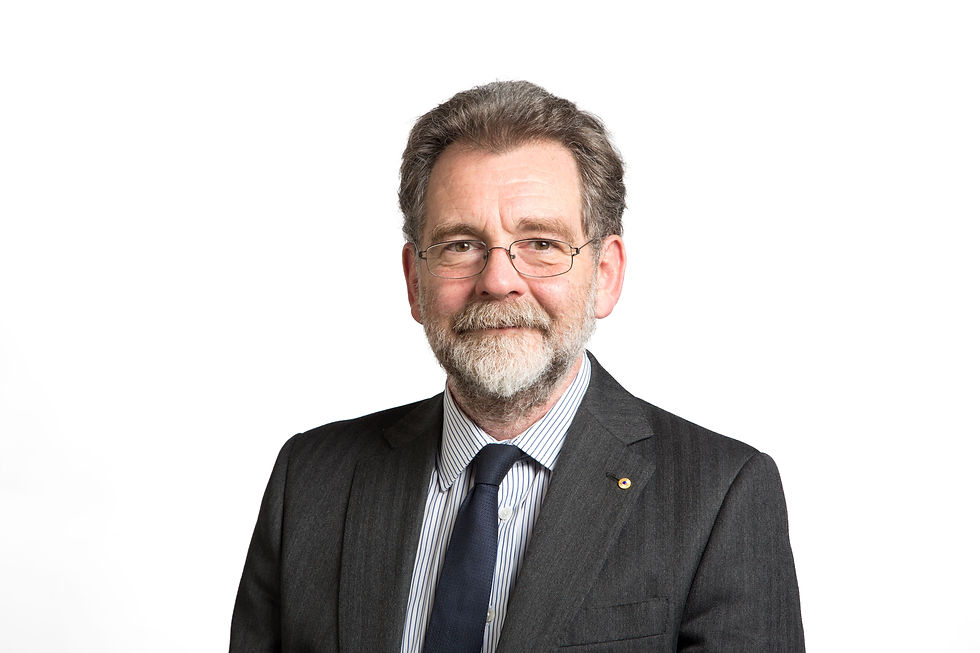
We had the opportunity to interview Hugh White, Professor of Strategic Studies at the Australian National University, columnist for The Age and contributor to the Lowy Institute. Professor White has worked as a journalist, advised governments and was the first Director of the Australian Strategic Policy Institute. In our latest Careers Blog post, he answers our questions about his work, his varied career and his advice for young Australians looking to work in international affairs.
1. While we know many of our readers will already be very familiar with you and your work, could you tell us about your current position? What does this role entail?
My 'day job' is professor of strategic studies at ANU. A big part of that is teaching both in our undergrad and Masters programs - I teach two courses a year and do a bit of lecturing in others' courses too. I also write quite a lot. Some of that is quite 'academic', but mostly I write for wider public and policy audiences. I do a fortnightly column for The Age and other Fairfax papers, a monthly column for the Singapore Straits Times, and fairly for other papers and websites, and for blogs like the Interpreter, Strategist and EAF. I'm interested in foreign policy broadly, but especially strategic and defence questions, and most especially about Australia, and I'm almost always focused on specific policy questions and choices rather than theoretical debates.
2. Going back to the very beginning of your career, what did you study at university? What was your first job when you graduated, and where did your professional life take you to get you where you are today?
I've never studied IR or Strategic Studies at university. As an undergrad (after a few false starts) I studied philosophy and then did a grad degree in philosophy as well. I loved it but never considered an academic career as a philosopher. I didn't think much about a career at all back then, but my vague idea was always to work for the Government in the foreign affairs and defence field, and when I'd finished my grad study I applied for jobs in that area. DFAT knocked me back but I got an entry level job at ONA which was a marvellous first step into government work with great colleagues many of whom are still friends and colleagues today. After a few years however I got itchy feet and went to ANU to do a PhD, with no real plans for where it would lead. I never finished the PhD, but instead found my way into journalism, where I wrote for the Sydney Morning Herald on defence and foreign issues in the Gallery which led to me joining Kim Beazley's staff soon after he became Defence Minister. I stayed with Kim for five years until he moved into a different portfolio, and then I moved to the PM's office as Bob Hawke's International adviser. When Bob lost the Prime Ministership I spent a year in ONA running Strategic Analysis before moving to Defence where I spent seven very happy years, most of them as Deputy Secretary for Strategy and Intelligence. I'd always thought however that it would be good to do more writing, so when the chance came I left Defence to become the first director of ASPI, and once that was up and running, 11 years ago now, I came to ANU.
3. You have had an incredibly interesting and varied career. What has been your greatest professional achievement?
Well, I've had a lot of fun and worked on some very interesting issues, but its always hard to know what you have really achieved. I guess the issues that stick with me most include working with Beazley on his great reforms to Australian defence policy in the 1980s, working with Hawke during the Iraq war of 1990-1, working on the East Timor Crisis of 1999 and the 2000 Defence White Paper, and over the past few years contributing to the Australian and international debates on the strategic implications of the rise of China. I have a feeling that this last issue will prove the most enduring.
4. What is your advice or tips for young Australians looking to start their careers in the security, defence and foreign policy space?
I’ve followed a few simple ideas over the years:
1. Read a lot of history, all the time.
2. Always take whatever job looks most fun, not the one that 'ticks a box' on your CV.
3. Be conscious of what you have to offer - ask yoursef the question 'what do I know more about than anyone else?', and if you can't think of anything, ask yourself why not.
4. Always try to work on the biggest issues, because they are most interesting, and don't underestimate your ability to contribute on them.
5. Obsess about writing well.
5. Lastly, as someone who is a significant contributor to the security discourse in Australia, is there anything you would like to say about current international affairs and Australia’s role in them?
Well, I think the rise of China is among the biggest events in Australia's history, and demands a major rethink of our place in the world, which we have hardly begun to think about coherently. So there is a lot to do!